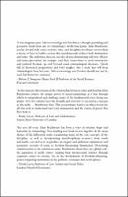Explore

How can power over others be transformed to 'power with'? It is possible to transform many institutions to build societies with less predation and more freedom. These stretch from families and institutions of gender to the United Nations. Some societies, times and places have crime rates a hundred times higher than others. Some police forces kill at a hundred times the rate of others. Some criminal corporations kill thousands more than others. Micro variables fail to explain these patterns. Prevention principles for that challenge are macrocriminological. Freedom is conceived in a republican way as non-domination. Tempering domination prevents crime; crime prevention reduces domination. Many believe a high crime rate is a price of freedom. Not Braithwaite. His principles of crime control are to build freedom, temper power, lift people from poverty and reduce all forms of domination. Freedom requires a more just normative order. It requires cascading of peace by social movements for non-violence and non-domination. Periods of war, domination and anomie cascade with long lags to elevated crime, violence, inter-generational self-violence and ecocide. Cybercrime today poses risks of anomic nuclear wars. Braithwaite’s proposals refine some of criminology’s central theories and sharpen their relevance to all varieties of freedom. They can be reduced to one sentence. Strengthen freedom to prevent crime, prevent crime to strengthen freedom.
This book is included in DOAB.
Why read this book? Have your say.
You must be logged in to comment.
Rights Information
Are you the author or publisher of this work? If so, you can claim it as yours by registering as an Unglue.it rights holder.Downloads
This work has been downloaded 94 times via unglue.it ebook links.
- 94 - pdf (CC BY-NC-ND) at OAPEN Library.
Keywords
- crime
- Crime & criminology
- crime control
- Crime prevention
- Criminology: legal aspects
- Freedom
- Jurisprudence & general issues
- Law
- non-domination
- non-violence
- Peace building
- Social movements
- Social services & welfare, criminology
- Society & Social Sciences
- thema EDItEUR::J Society and Social Sciences::JK Social services and welfare, criminology::JKV Crime and criminology
- thema EDItEUR::L Law::LA Jurisprudence and general issues::LAR Legal aspects of criminology
Links
DOI: 10.22459/MF.2021Editions

